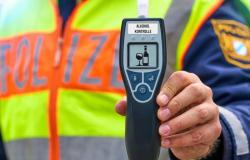In practice, men who have a very low concentration or absence of sperm in their semen are at higher risk of developing cancer, especially at a younger age, compared to fertile men. A family history of male infertility – in the family – could therefore prompt the detection of certain cancers, which are very specific depending on the type of infertility.
Because research also reveals that the level of risk and the type of cancer vary considerably depending on the types of infertility, either a low sperm count (oligozoospermic sperm: less than 1.5 million sperm per milliliter of semen) or none (azoospermic).
Previous research has suggested that male infertility is linked to an increased risk of cancer in men but with so far inconsistent results. Lead author Dr Loemy M Ramsay comments on the research: “We sought to describe the extent to which patterns of cancer risk vary between different groups of subfertile men. By identifying families with similar types of cancer, we may be able to uncover factors involved in both infertility and cancer.”
The study is conducted on semen analysis data performed between 1996 and 2017 from 786 male participants attending fertility clinics in Utah. The researchers compared these data to those of 5,674 fertile men (control group) – who had at least one child to confirm their fertility. The researchers also collected information on first-, second-, and third-degree relatives using the Utah Population Database. Cancer diagnoses were identified from the cancer registry. Sequencing studies looked for specific genetic mutations that might underlie the associations between subfertility and cancer. Cancer risk levels were assessed for each family. The analysis finds that:
- among men with fertility problems, 426 were azoospermic and 360 were severely oligozoospermic
- Analysis of data from all families of azoospermic men reveals a significant increase in the risk of 5 cancers: bone and joint cancer (156% increased risk), soft tissue cancers such as sarcomas (increased risk 56%), uterine cancer (27% increased risk), Hodgkin lymphoma (60% increased risk) and thyroid cancer (54% increased risk);
- analysis of data from all families of severely oligozoospermic men reveals a significantly increased risk of 3 cancers: colon cancer (16% increased risk), bone and joint cancer (143% increased risk), and cancer testicles (134% increased risk). But also and surprisingly, a 61% reduction in the risk of esophageal cancer;
- Cancer risk and cancer types vary significantly among families of men with fertility problems, both across subfertility type and also within subfertility type: these findings may help explain the associations inconsistent between subfertility and cancer obtained in previous research;
- for example, an increased risk of testicular cancer is observed in a third of families of oligozoospermic men, but the increase in this increased risk varies from 4 to 24 times depending on the family;
- thus, among the families of azoospermic men, 13 different groups are identified – in terms of level of risk and types of cancer – of which 12 groups therefore present an increased risk of developing at least one type of cancer;
- Among families of oligozoospermic men, 12 distinct groups also have an increased risk of at least one type of cancer.
This research thus identifies
several unique patterns of cancer risk in families of men with low fertility.
Risk levels that can also be explained by exposures or environmental factors, which can act synergistically with the genetic risk profile to increase the risk of certain cancers. However, these first models provide a much better understanding of the biological mechanisms of cancer and infertility.
Initially, this will allow doctors to make more accurate predictions of cancer risk for their patients with fertility problems and their families, and thus provide them with more personalized advice.






